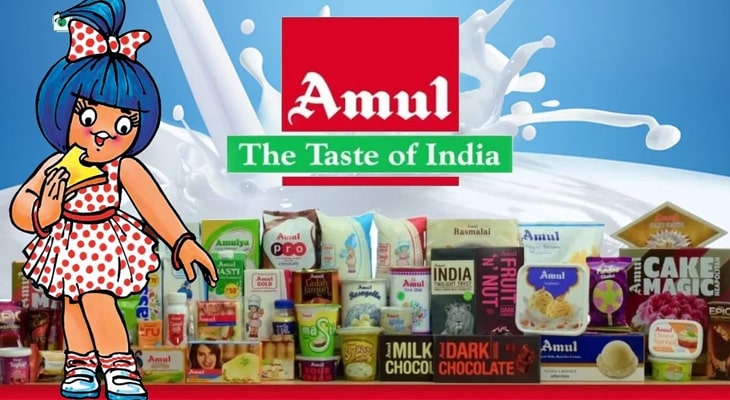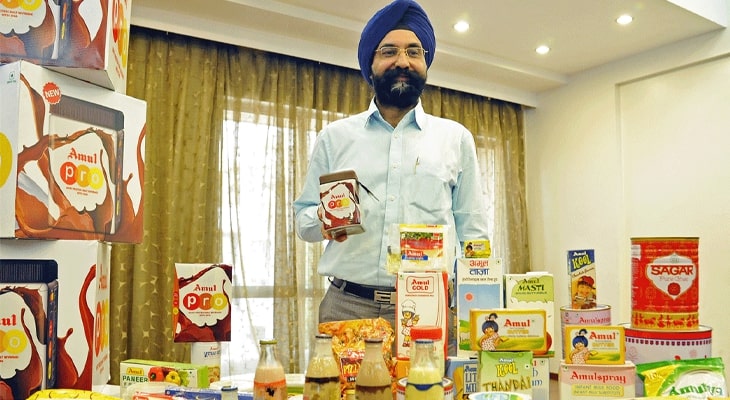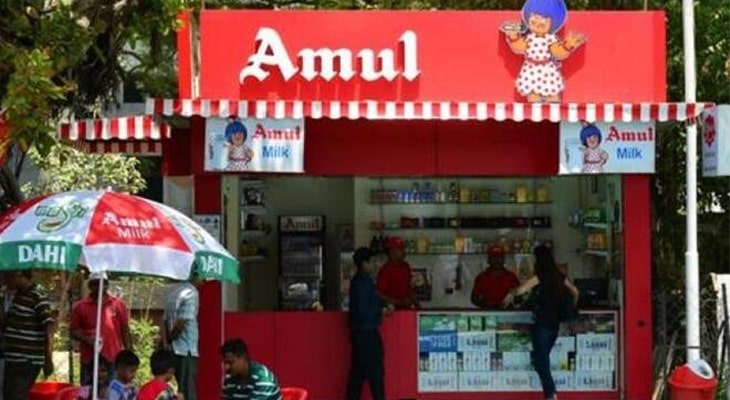
How Amul stayed a business giant despite the pandemic, An inside look at the strategy.
- By StartupStory | September 20, 2021
AMUL or Anand Milk Union Limited was registered on 19 December 1946 as a response to the exploitation of the marginal milk farmers in Kaira by the agents of the main dairy industry back then, which was Polson Dairy. The agents manipulated the farmers to buy milk from them at small predetermined prices, and the government had given Polson the freedom to execute a monopoly in the milk collection in Kaira. Being incensed by the biased trade executions, the milk farmers approached Sardar Vallabhai Patel. Led by the local farmer leader Tribhuvandas K. Patel, the farmers suggested a cooperative Milk Producers Union in the district of Kaira, to supply milk directly to Mumbai, instead of handing it over to Polson for minimal prices. In the beginning, it was called Kaira District Milk Union Limited, which was later renamed Anand Milk Union Limited. Amul played a significant role in the white revolution, it encouraged it to the extent that India had become one of the chief producers of milk and dairy.

Amul’s business stood strong throughout the tough conditions of flood and war, and it remained the same or even flourished during the pandemic imposed by the Prime Minister on 19 March 2020. While the business of billion-dollar industries halted, Amul managed to maintain its equilibrium and increase its profit by 698 crores.
The dairy industry bore a hard hit when the nationwide lockdown was imposed, leaving everyone on the production chain devastated. The milk industries were shutting down and cutting down on their production, which led to frontline labourers losing their jobs, and milk farmers did not know what to do with their milk production. The industries witnessed a huge drop of 20% in demands and revenue due to restaurants and eateries being shut down. It is to be noted that while the other companies were lowering the production, Amul started preparing for a surge in demand. Why? Because one thing that needs to be taken into consideration is consumer behaviour, whenever there is a crisis of any kind, consumer behaviour changes.
During the lockdown, the demand for milk and dairy products amplified, people started to eat in more, homemade food started gaining popularity, people started switching loose milk for packet milk for health safety concerns. By the mid-2020s, the demand for milk and milk-based products had increased in manifolds. Cheese was consumed 80% more than before, cottage cheese 40% and condensed milk 100%, therefore, Amul started functioning its plants at 115% capacity. All of this happened when the restaurant, the most important sector for revenue generation, was not functional. The productions were so voluminous that Amul had to rent other plants to aid the productions, on top of their plants. Amul started to replace trucks and tankers with railways to supply the products to different cities due to government-imposed restrictions.

To satisfy the rise in demand, they had to procure more milk than before, so they paid 800 crores more to the rural milk farmers of India and procured 3.5 million litres of extra milk every single day. They hired labourers and made arrangements for their safety, accommodation and food, they gave out incentives of Rs.100 -125 to the casual workers, also provided for cattle feed when they saw its deficit.
Additionally, they collaborated with third-party e-commerce sites like Dunzo, Big Basket, and Flipkart to maximize their sales, they also partnered with Zomato and Swiggy which made them sell 3 crores worth of Amul products. Amul also started to heavily advertise their products, the airing of ads increased by 316%, they even rolled out their old ad clips to make people feel nostalgic.

This huge supply chain was monitored thoroughly by Amul with the full-fledged database system owned by IBM, which made looking into and analysing the supply chain so much more agile. Amul, with the wonderful prudence of the managing director, Mr. Rupinder Singh, sprightly supply chain management system, digitalisation, third party collaboration and excellent labour incentivisation, managed to keep a firm ground even when other industries started to crumble. It was a strategy at its finest.








